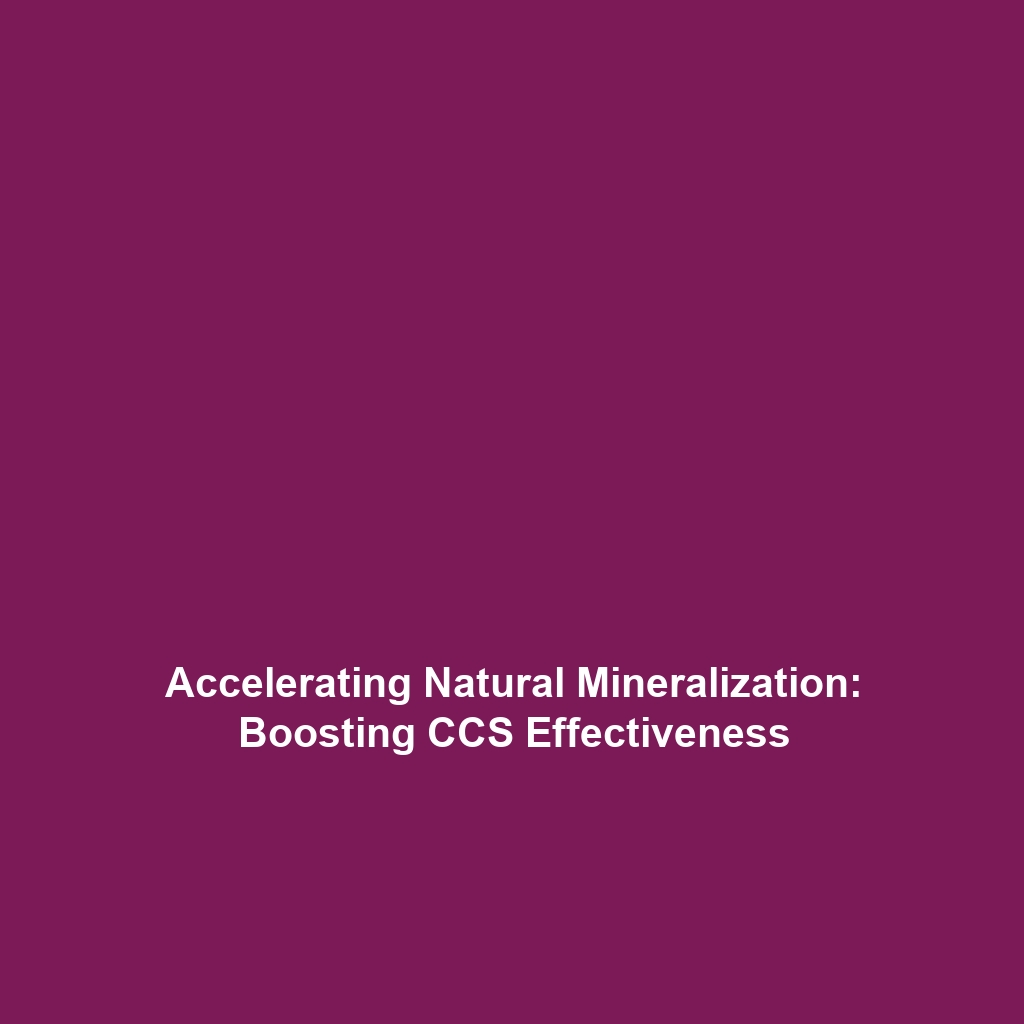Accelerated Mineralization in Carbon Capture & Storage (CCS)
Mineralization is a natural process that occurs over geological timescales, transforming carbon dioxide (CO2) into stable mineral forms. This transformation plays a significant role in Carbon Capture & Storage (CCS), a key technology in mitigating climate change. By accelerating mineralization through industrial processes, we can enhance its effectiveness and efficiency, providing a robust solution for reducing atmospheric CO2 levels. In this article, we will delve into the science behind mineralization, its applications, challenges, and innovations shaping the future of CCS.
Key Concepts of Mineralization in CCS
Understanding mineralization is crucial for its integration into Carbon Capture & Storage (CCS). Below are some defining concepts:
The Process of Mineralization
Mineralization involves the chemical reaction where CO2 reacts with naturally occurring minerals, resulting in carbonate formations that sequester carbon in solid form. This natural process is critical for stabilizing carbon over millennia.
Industrial Acceleration Techniques
Various methods can enhance this process, including:
- Enhanced weathering: Grinding minerals to increase surface area and reaction rates.
- Carbonation technologies: Injecting CO2 into crushed minerals under controlled conditions.
- Biomimetic processes: Utilizing biological systems to facilitate mineralization.
Applications and Real-World Uses
The applications of accelerated mineralization within Carbon Capture & Storage (CCS) are vast and impactful:
- Building materials: Utilizing carbonated minerals to create sustainable construction materials.
- Soil enhancement: Integrating mineralization byproducts in agriculture to enrich soil carbon content.
- Waste management: Locking away CO2 generated from industrial processes in stable mineral forms.
Current Challenges in Mineralization Techniques
Despite its promise, the study and application of accelerated mineralization face several challenges:
- Economic feasibility: High cost of mineral processing and transportation limits scalability.
- Energy requirements: Industrial processes often require significant energy input, questioning sustainability.
- Public perception: Societal acceptance of mineralization technologies can hinder implementation.
- Regulatory frameworks: Lack of clear regulations around mineralization impacts its adoption.
Future Research and Innovations
The future of accelerated mineralization in Carbon Capture & Storage (CCS) is bright, driven by emerging technologies and innovative research. Key areas of focus include:
- Next-gen materials: Developing advanced carbonates with improved sequestration properties.
- Carbon fixation efficiency: Optimizing existing processes to increase CO2 uptake.
- Integration with renewable energy: Exploring synergy with renewable energy sources to reduce process energy consumption.
Conclusion
In conclusion, mineralization represents a crucial component in the Carbon Capture & Storage (CCS) landscape. By accelerating this natural process through industrial methods, we have the potential to make significant strides in carbon sequestration, combating climate change effectively. It is imperative for researchers, policymakers, and industries to collaborate and address the current challenges to realize the full potential of accelerated mineralization. For further insight, explore our articles on latest CO2 reduction technologies and sustainable industrial practices.
